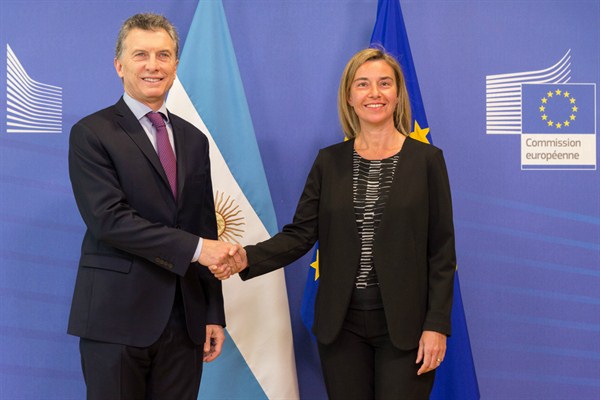Argentine President Mauricio Macri was in Brussels earlier this month to push the European Union on finalizing a free trade agreement with the South American trade bloc Mercosur. In an email interview, Inmaculada Martinez-Zarzoso, a professor of economics at the University of Goettingen, discusses the state of the free trade negotiations between the EU and Mercosur.
WPR: How extensive are trade and political ties between the EU and Mercosur, and what is standing the way of a free trade agreement between them?
Inmaculada Martinez-Zarzoso: Mercosur—and especially Brazil, Mercosur’s largest economy—is an important market for EU goods and services. The main goods exported by the EU are fertilizers, pharmaceuticals, chemical products and machinery. Likewise, Mercosur is one of the largest exporters of agricultural goods to the EU, especially onions, garlic, potatoes, pears and olive oil. Around 5 percent of the EU’s foreign direct investment (FDI) is in Mercosur, with Brazil the third-largest recipient of FDI in 2014.

